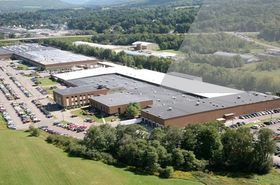Microsoft-owned LinkedIn has paused plans to move its infrastructure to Microsoft Azure.
The business-focused social networking company was acquired in 2016 for more than $26 billion, with Microsoft in 2019 saying that it would shift the platform to its own cloud and close the company's data centers.
But now CNBC reports that LinkedIn quietly decided not to continue with the Blueshift project last year. Executives told staff that the effort was put on hold, not entirely canceled.
In a memo to R&D employees in June 2022, LinkedIn CTO Raghu Hiremagalur said LinkedIn would continue to use some Azure services and will “focus our efforts on scaling and innovating our on-prem infrastructure.”
He added that, due to "the incredible demand Azure is seeing and the growth of our platform," the company had "decided to pause our planned migration of LinkedIn to allocate resources to external Azure customers."
While Azure has indeed grown rapidly, the challenges of the cloud migration also impacted the decision. LinkedIn wanted to use its own software tools instead of those available on Azure.
The social network is now building another data center to serve its members, which crossed the one billion mark this November. Back in 2016, it operated a corporate data center in California, and four leased colocation facilities in Texas, Virginia, Oregon, and Singapore - update: The company told DCD that it currently operates out of four facilities.
Prior to its acquisition, LinkedIn invested heavily in its own data center infrastructure, pioneered open-source innovations, cofounded the Open19 Foundation, and developed its own custom hardware including networking switches.
LinkedIn told DCD in a statement: “We are using both Azure to complement our infrastructure needs and further investing in our data centers. This includes our running 100 employee-facing applications on Azure, leveraging Azure FrontDoor and ongoing work to consolidate our data center locations that are currently spread across multiple buildings under a single roof.
"Azure has been crucial to support and scale collaboration and productivity for our teams and to deliver value to our members.”







